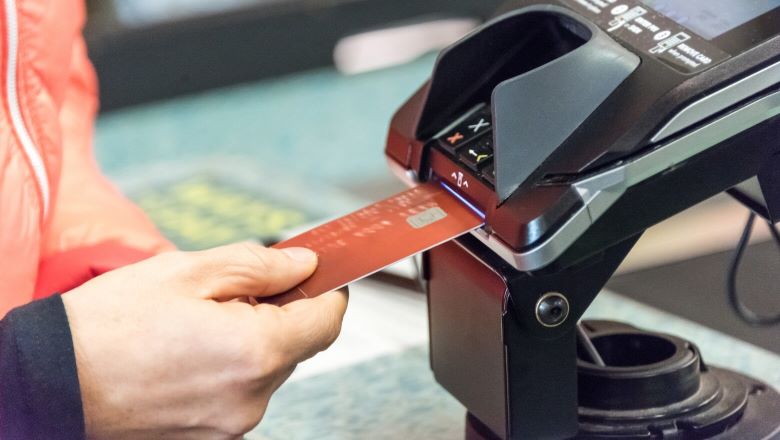Guide to Unfreezing Your Credit Report
If you have frozen your credit to protect your sensitive information from fraudsters, you may at some point want to unfreeze it. That will typically be necessary if you are applying for a new credit card or a loan. A credit freeze provides you with an extra layer of security because it prevents anyone (even a legitimate entity) from running a hard inquiry on your report or potentially opening a new line of credit without your permission.
In this guide, you’ll learn all about how to unfreeze credit.
Table of Contents
Key Points
• A credit freeze blocks access to your credit report, preventing new credit lines or loans from being opened.
• Unfreezing can be done via phone, online, or mail.
• Phone and online unfreeze requests are processed within an hour.
• Mail unfreeze requests take up to three business days after receipt.
• Existing credit cards remain usable during a credit freeze.
What Does it Mean to Unfreeze Credit?
When you freeze your credit report, you can’t open a new line of credit, whether that’s a credit card, mortgage, auto loan, or something else. At the same time, no one can run a hard inquiry on your credit report — so lenders, landlords, even potential employers can’t access it. While there are limits on who can legally look at your credit report, a credit freeze can provide peace of mind that no one can open an account in your name.
When you unfreeze your credit, it’s like you’re turning back on access to the credit report. Once your credit is unfrozen, you can once again open a new line of credit or apply for a loan, and lenders can run a hard pull on your report.
How a Credit Freeze Works
Also known as a security freeze, a credit freeze restricts access to your credit file. Credit freezes don’t happen automatically. You have to reach out to each of the three credit bureaus — Experian®, Equifax® and TransUnion® — to ask for a credit freeze. Thanks to the Fair Credit Reporting Act, if you request a credit freeze over the phone or online, the credit bureaus are required to freeze your report within 24 hours. If you send the request via mail, they have up to three business days.
Thanks to the Fair Credit Reporting Act, if you request a credit freeze over the phone or online, the credit bureaus are required to freeze your report within 24 hours. If you send the request via mail, they have up to three business days.
When you make a credit freeze request, each bureau will give you a PIN (personal identification number) or password that you need when you decide to lift the freeze.
A credit freeze is often confused with a credit lock, but they’re two separate things. A credit lock is a service you sign up for, and there’s usually a subscription fee. It’s similar to a credit freeze as you block access from most lenders. However, you can freeze or unfreeze it at any time on your phone or computer, and you don’t have to wait for it to go into effect.
A credit freeze is free, and you have to go through the credit bureaus to thaw your credit, and it takes about an hour to go into effect.
Types of Credit Freeze Lifts
At some point you may think about unlocking your credit freeze. When the time comes, there are two main types of credit freeze lifts:
Temporary Lift
A temporary lift will unfreeze your credit report for a designated time period. You can choose how long you’d like your credit to be thawed.
You can thaw your credit freeze temporarily to apply for new credit, take out a loan, or apply to rent an apartment. But once you’re done with that financial task, the freeze restarts.
Permanent Lift
A permanent lift will thaw your credit freeze for an indefinite amount of time. You might want to go this route if you don’t want to go through the steps of freezing and unfreezing your credit and find that the trouble isn’t worth the benefits.
Recommended: How to Read and Understand Your Credit Report
Ways to Unfreeze Credit Using Bureaus
If you are ready to unfreeze your credit, you need to contact each of the credit bureaus. You can do it in one of three ways:
• Phone: If you request a lift by phone, the credit bureaus are required to thaw your credit within an hour.
• Online: If you make the request online, your credit freeze will also be lifted within the hour.
• Mail: You can also request a credit thaw by mail. If you go this route, expect the lift to happen within three business days after receipt of your request.
Recommended: How to Dispute a Credit Report and Win Your Case
When You Should Unfreeze Your Credit
Generally, you need to unfreeze your credit anytime someone needs to review your credit report, like if you’re opening a new line of credit or applying for a loan. Some common scenarios of when you’ll need to unfreeze your credit:
• Applying for a credit card
• Applying for a mortgage, personal loan, or car loan
• Applying for a line of credit
• Hunting for an apartment
Recommended: Common Credit Report Errors and How to Dispute Them
Credit Freeze vs. Fraud Alert
If you’re at high risk for fraud, suspect you’ve been a victim of a credit card scam, or just want to take extra precautions, you can set up a fraud alert on your credit report. When you have a fraud alert in place, a lender or creditor needs to verify your identity before they can issue you a new line of credit or approve you for a loan.
To place a fraud alert, you only need to reach out to one of the three credit bureaus. By law, that credit bureau must let the other two credit bureaus know you placed a fraud alert. In turn, all three credit bureaus will place a fraud alert on your credit file.
Initial fraud alerts are free, and initial fraud alerts last one year. After one year, you can renew it. Extended fraud alerts last for seven years, but they are for victims of identity theft, and you must submit a police report to qualify.
A credit freeze, on the other hand, blocks any party, including lenders and creditors, from accessing your credit. You need to place a credit freeze separately with each of the three credit bureaus, which lasts indefinitely. They can only be lifted when you make a request.
💡 Quick Tip: On-time payments are key to building your credit score. To ensure that you make your payments in time, consider setting up automatic payments or set a calendar reminder of your due date.
The Takeaway
Unfreezing your credit report is relatively simple, and it’s easy to set up a temporary lift should you decide you want to apply for a new credit card or personal loan. There are a few different ways you can go about thawing your credit as needed, and the credit bureaus have to unfreeze your credit within an hour of you making the request by phone or online.
Whether you're looking to build credit, apply for a new credit card, or save money with the cards you have, it's important to understand the options that are best for you. Learn more about credit cards by exploring this credit card guide.
FAQ
Can I unfreeze my credit?
You can unfreeze your credit anytime by going through each of the three credit bureaus — Experian, Equifax, and TransUnion — and requesting a lift on your credit freeze. You can ask for either a permanent or temporary lift. The thaw usually lasts anywhere from one to 30 days if it’s temporary.
Can you freeze your credit automatically?
Credit freezes don’t happen automatically. You will need to contact the three credit bureaus and make a specific request. You can do so online, by telephone, or via snail mail.
How soon can I unfreeze my credit after freezing?
You can unfreeze your credit as frequently as you like and request a credit lift as soon as you freeze it. If you made the request online or over the phone, it can take up to an hour to unfreeze your credit. If you send the request in the mail, it can take up to three business days after receipt of your request.
How long does it take to unfreeze your credit?
It depends on the credit bureau and how you made your request. If you requested your credit to unfreeze or “thaw” over the phone or email, the credit bureaus must lift it within an hour. If you made the request by mail, the credit bureaus must unfreeze your credit within three business days of receipt of your request.
Can I still use my credit card after freezing my credit?
Freezing your credit doesn’t impact your ability to use your credit card. You can freely make purchases on your card, book trips, redeem your cash-back points, and so forth. But if you want to do something that requires a hard pull of your credit — apply for new credit, say, or submit a rental application for an apartment — you’ll need to unfreeze your report first.
Photo credit: iStock/nortonrsx
Financial Tips & Strategies: The tips provided on this website are of a general nature and do not take into account your specific objectives, financial situation, and needs. You should always consider their appropriateness given your own circumstances.
Third-Party Brand Mentions: No brands, products, or companies mentioned are affiliated with SoFi, nor do they endorse or sponsor this article. Third-party trademarks referenced herein are property of their respective owners.
SOCC-Q325-003
Read more



